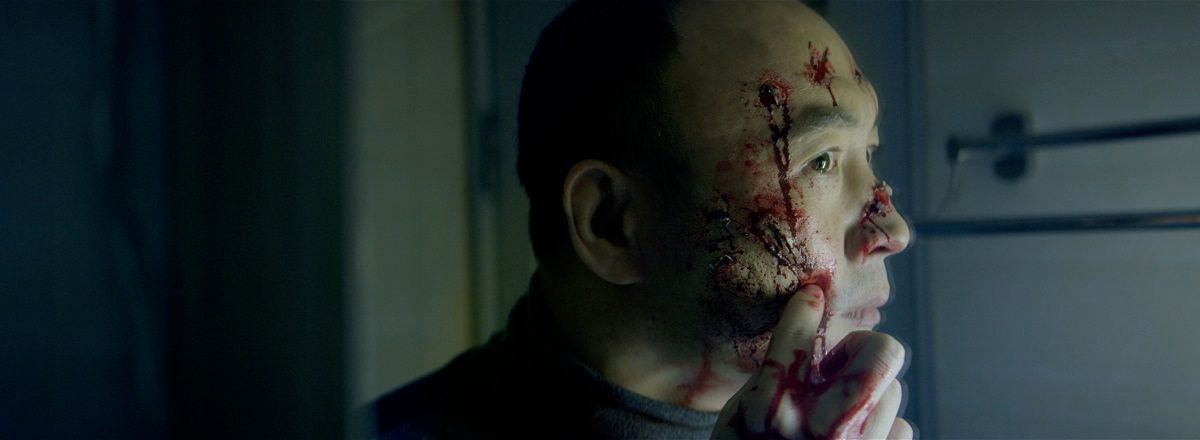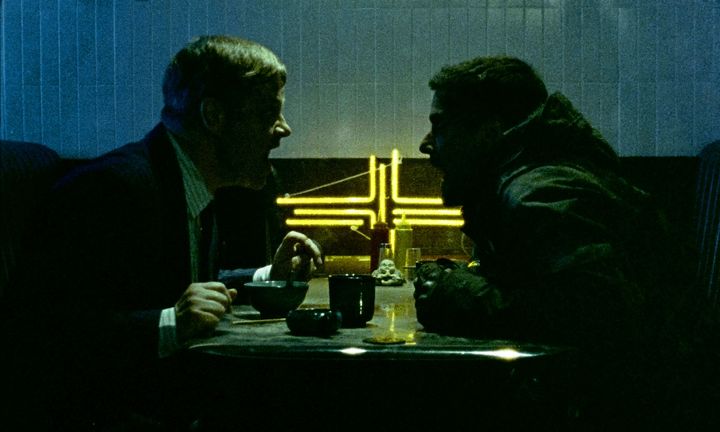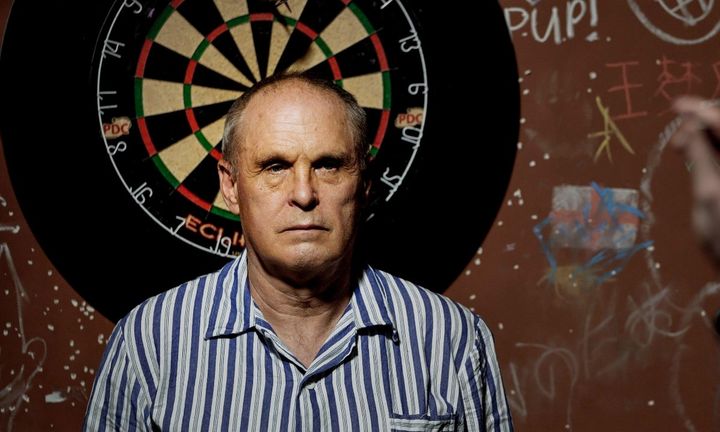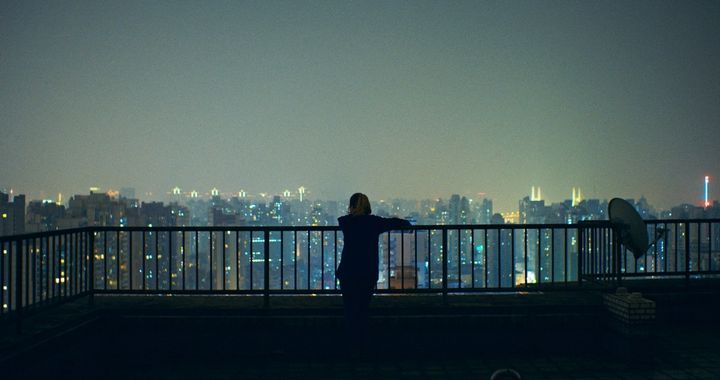Upon discovering he is a robot, a man is sent spiraling into madness in the sci-fi short Within. Writer-director Evan Kimball Plochmann gives his thoughts on the pressures of modern society, the challenges of making a film in China, and finding inspiration in the experience of everyday life.
Shot in Beijing, Within tells the story of a man named Ming (played by Liu Zhongzhe) who suffers partial facial disfigurement as the result of an accident in his home. When his injuries lead him to the realization that he is actually a robot, Ming begins to question the life he thought he knew, including his relationship with his pregnant wife (Chen Bohan). In the process, filmmaker Evan Kimball Plochmann probes the very concept of who we (think we) are.
“The idea that we don’t know who we truly are and if we found out that we literally were something or someone different we would be very frightened,” says Kimball Plochmann, adding that, “It just takes on more meaning within China where the oppression of self is much more severe.”
On a symbolic level, Kimball Plochmann explains, being a robot represents being a product of one’s own culture. And, it’s this type of commentary that he believes goes to the very heart of modern Chinese society.
“There is so much pressure in this country to conform and succeed in very specific ways—it’s very upsetting to me and it’s a kind of madness,” he states. “And, the way Chinese portray themselves can be vastly different than their feelings. The way they treat each other might be because of social obligation—not about their own personal choices.”
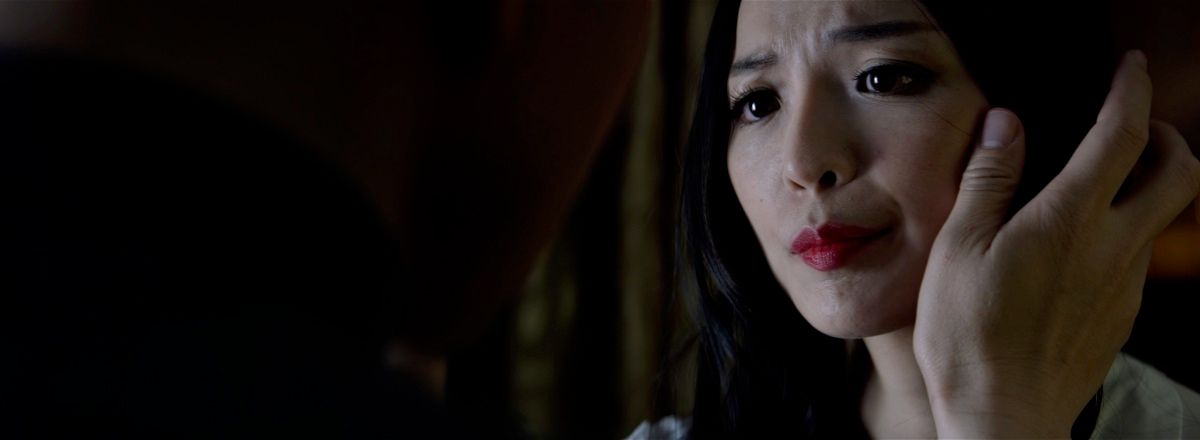
Despite the disturbing nature of the film, Kimball Plochmann reveals that at least some of his inspiration came from a simple, yet beautiful place.
“My best friend once told me that as a child he cut his hand so badly he could see what was underneath, but instead of pain he found wonder,” he recalls. “That inspired me—this idea of finding out what we are underneath in a visual way.”
In addition to being a stand-alone project, the short was also produced to serve as a proof-of-concept for a feature-length film the director has spent nearly three years developing. Moreover, as Kimball Plochmann explains, linking the work to a bigger project was key to raising the 50,000RMB budget spent on making it.
"If you are making art, just say it. If you are making an action film, don’t let them suggest more romance or something out of place."
“There are almost no opportunities at all for short filmmakers to raise money for their films in China. People will laugh at you and ask you why you aren’t making a feature,” he says. “The only reason I got money was because I had a feature script behind the film and I’m expected to sell the script to pay it back.”
Nevertheless, when it comes to asking people for money, he cautions it’s always best to ensure you’ve got a well-developed idea and are prepared to stand up for your work—especially when faced with the possibility of having to make a trade-off or compromise.
“If you are making art, just say it. If you are making an action film, don’t let them suggest more romance or something out of place,” Kimball Plochmann asserts. “Expect a lot of opinions, people offering you help to do things their way, and get some thick skin and be prepared to say, ‘No, thank you.’”
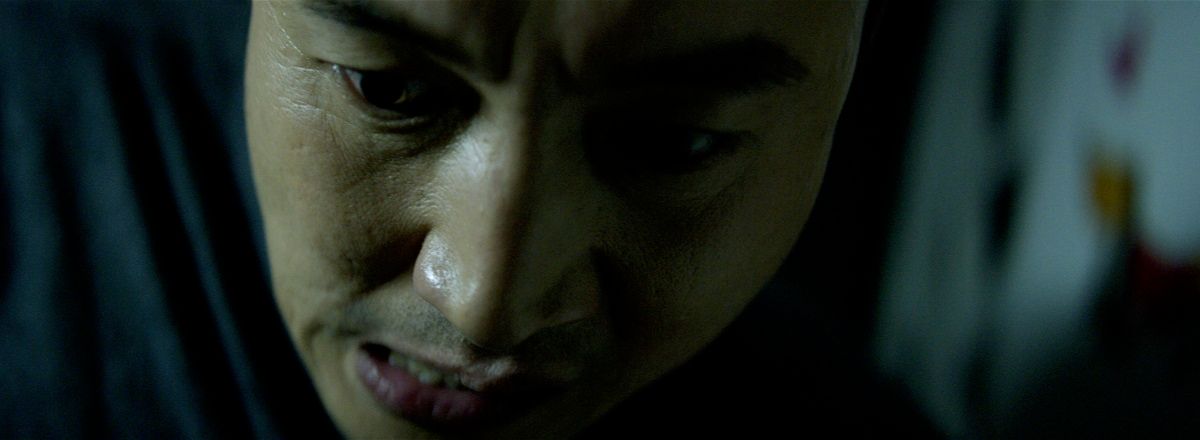
On top of just raising the funds to shoot the film, Kimball Plochmann spent almost two-and-a-half months securing a location, assembling a cast and crew, and managing a budget before shooting could even start.
“I don’t think anyone in the history of filmmaking has ever said it was easy. So the most challenging part would be everything,” he jokes.
Yet, despite the seemingly uphill battle, Kimball Plochmann was able to build a team of more than a dozen Chinese and foreign crew members to help get the project into production.
“I went from saying, ‘If I have to, I’ll direct and DP this, or if I get a DP, I’ll do sound and direct,’ to having a full crew and doing the directing solely.”
"I don’t think anyone in the history of filmmaking has ever said it was easy. So the most challenging part would be everything."
Furthermore, when it came to attracting the right people to work with, he points out that money wasn’t always everything.
“Get to know people who will like your project,” he says. “If they like your project, they’ll work cheap.”
Of course, saving money on wages doesn’t mean you should blow it all on the latest state-of-the-art gear either. And, as Kimball Plochmann attests, having a solid understanding of the technical requirements of your production is an important step towards making good decisions about how to spend your budget.
“Don’t ever think that you have to do things the expensive way. There are more options, so put your energy into finding them,” he states. “Spend your money where it has to go—not on silly gimmicks and never, ever on equipment.”
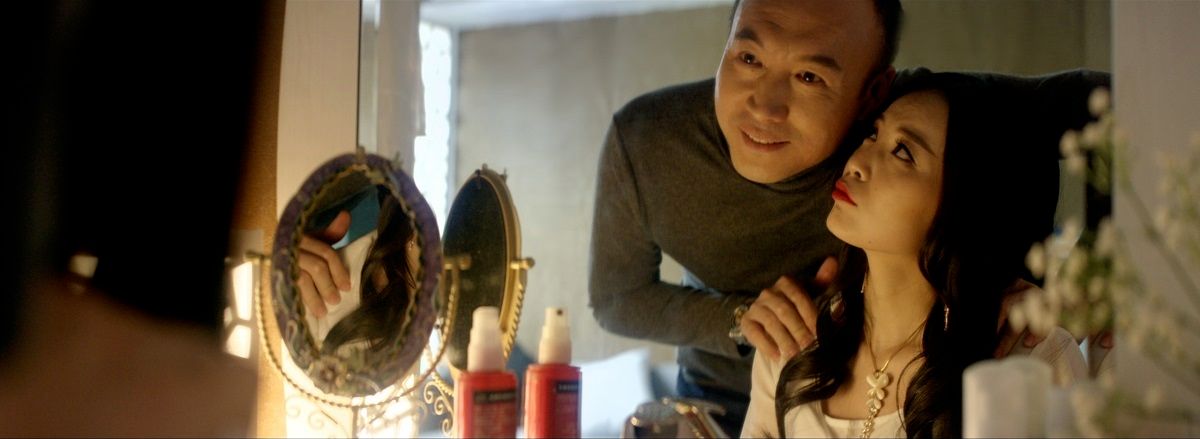
Then again, when it comes to reigning in the cost factor, sometimes it really just comes down to having the right partner to get the job done.
“Working with my wife helped a lot. I could be sympathetic to people about money and then she could come in and be cold to them,” Kimball Plochmann says. “It helps having a co-producer with you that can play good cop, bad cop.”
With post-production wrapped up, Kimball Plochmann has turned his attention to submitting the film to festivals in hopes of generating more interest in the idea of making a feature. And, in spite of the challenges he’s faced along the way, he admits the experience has actually been a pretty good one.
"Whatever you do, whatever you experience, whatever you hear about can be turned into a story."
“I’ve enjoyed all of it. Making films is rewarding and everything else can feel boring in comparison,” he says. “I gained a lot of good people from this shoot and feel much closer to having a reliable team.”
Ultimately, Kimball Plochmann states that his desire to tell stories is what has continued to motivate him to keep making films.
“As a filmmaker, I’m always being influenced by the things around me. We’re storytellers. Whatever you do, whatever you experience, whatever you hear about can be turned into a story,” he says.
